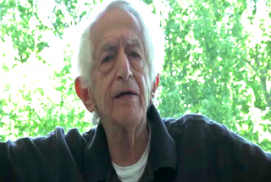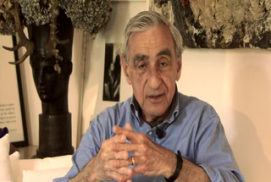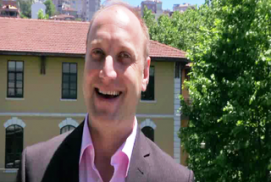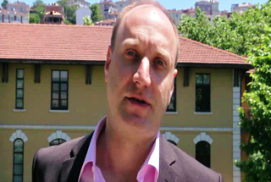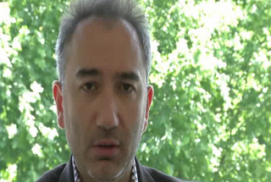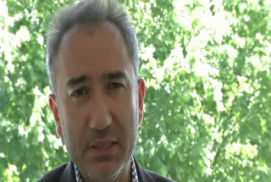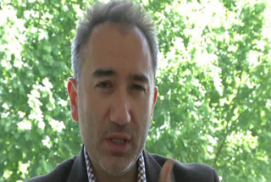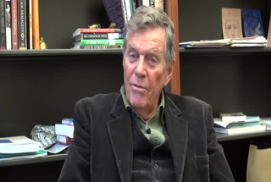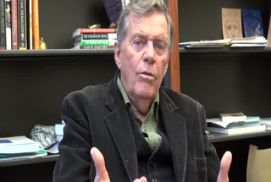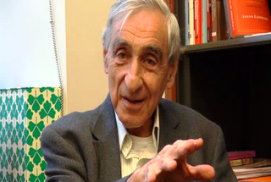
Videos

- Richard J. Bernstein 27 March 2015Part 1 – “The doctrine of pluralism became important against the notion of the melting pot,” says Richard Bernstein, a professor of philosophy at The New School. Developing in America as a reaction to forms of ethno-cultural monism that emerged during the great immigration waves, the doctrine of pluralism stands in opposition to a conception of “American” identity modelled on the figure of the white Anglo-Saxon protestant. Professor Bernstein, interviewed during the Istanbul Seminars, argues that democracy encourages recognition of cultural differences in sort of ‘overlapping unity.’ – Watch Part 2 of this video
- 10 March 2015“Many from my generation believed that religion would disappear,” notes Michael Walzer, editor emeritus of Dissent magazine and Professor at the Institue for Advanced Study in Princeton. “Instead, it came back: politicized, modern, militant and anti-liberal.” In secular nations such as Algeria, India and Israel, we can observe a violent return to religion. What happened? Michael Walzer, interviewed by Reset-DoC, asks: “Was it a mistake not to engage critically with religious culture?”
- 10 February 2015Part 2 – Republics, kingdoms, and semi-authoritarian presidential systems all enforce state oversight over religious affairs. But “why do even Islamist governments reinforce control over religion?” asks Jonathan Laurence, political scientist at Boston College. “To keep politics out of the mosques? To seek a neutral public space in order to gain more political influence?” Interviewed during our Istanbul Seminars 2014, Laurence contends that while these aspects may be true, Islamists also fear that the rule of law is threatened by their more radical counterparts. Watch Part 1 of this video
- 10 February 2015Part 1 – In the 1950’s, many states in the Muslim world denied religious realities as they concentrated on modernization. According to Jonathan Laurence, interviewed during the Istanbul Seminars 2014, a secular population was forced into existence, in turn triggering a religious and traditionalist backlash. Political participation has opened the way for religious parties but democratic discomfort is still strong. Laurence advocates patience: this is a world still under assessment. Let’s not forget how long it took to judge the French Revolution. Watch Part 2 of this Video
- Mustafa Akyol 23 January 2015Is Islam compatible with liberal democracy? Yes, contends Mustafa Akyol in an interview from the Istanbul Seminars 2014, but it needs effort in re-thinking and re-interpreting Islamic thought, and the will to do so. Islamic medieval history is full of examples of pluralism.Watch part 1 of this video: “Turkey, the trap of power” – Watch part 2 of this video: “About the Gezi movement”
- Mustafa Akyol 23 January 2015“In Turkey, the religious conservatives had been ridiculed and oppressed by an authoritarian secularism. Now they are in power and the fear to lose it makes them paranoid and aggressive. But the Gezi movement has been a positive input for Turkey’s democracy,” explains Mustafa Akyol, interviewed during the Istanbul Seminars 2014. Watch Part 1: “Turkey, the Trap of Power” – Warch Part 3: “Pluralism and Liberal Democracy”
- Mustafa Akyol 23 January 2015“Is Turkey trapped in the cyclical history of Ibn Khaldoun, the medieval thinker who said that new elites conquer, change things, but gradually imitate the old elites? After the Kemalist oppression came a phase of liberalization by the AKP. Now, a new (religious) ideal society might be, once more, imposed with power.” Mustafa Akyol, a Turkish writer and the author of Islam Without Extremes: A Muslim Case for Liberty, warns of the danger of authoritarianism in the name of religion in an interview from the Istanbul Seminars 2014. Watch Part 2: “About the Gezi Movement” – Watch Part 3: “Pluralism and Liberal Democracy”
- Alfred Stepan 14 July 2014“In the very strict sense, explains Professor Alfred Stepan from Columbia University, there is not one democracy in the world that has strict separation between Church and state. For example, 100% of the 27 members of the European Union give money for religious education, one third of them have established churches.
- Alfred Stepan 14 July 2014“What does democracy need and require from religious institutions and people? And, on the other side, what is the minimum religious people can legitimately expect from democracy?” asks Professor Alfred Stepan from Columbia University.
- 30 June 2014Michael Walzer, from Princeton’s Institute for Advanced Study, explains why cultural pluralism and the congregational model have helped integration and accommodation of religious differences in the USA. Italian or Irish Christians, Jews or Black Baptists are those who have built institutions, hospitals and who join in culture. Professor Walzer explains that according to sociologists “that process has begun with American Islam. That is the ‘protestantization’ of the mosque, or the turning of the mosque into an American congregation, with the men’s club, the ladies auxiliary and all the paraphernalia of an American protestant congregation. That hasn’t happened in Europe. The congregational model – even if each one has his own adaptation of that model – has been enormously helpful in the accommodation of religious difference in the United States and I think that is perhaps the biggest reason why Islam in America is very different from Islam in Europe.” Watch Part 1 of this video


